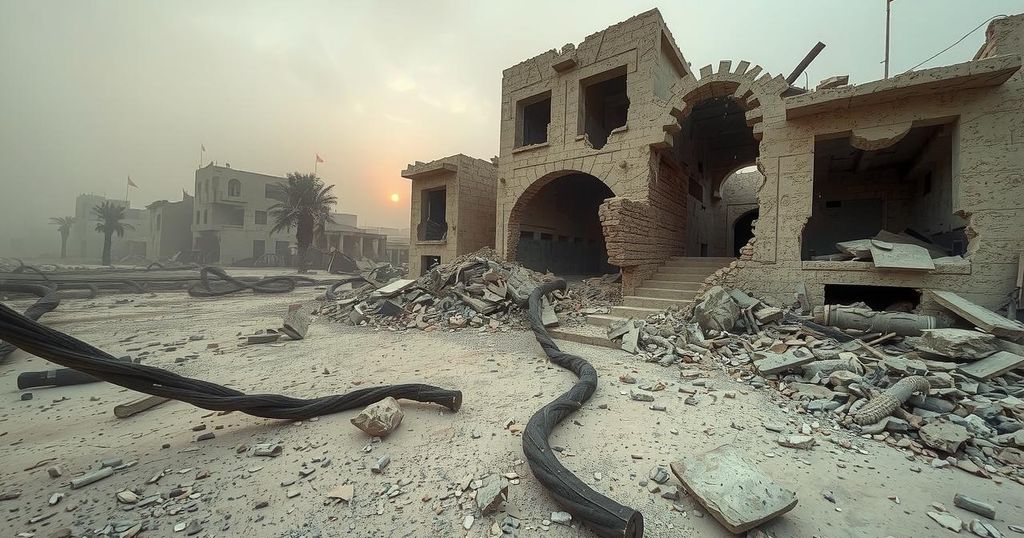Al-Shabaab jihadists are showing signs of resurgence in Somalia, having gained control over strategic regions and recently attempted to assassinate President Hassan Sheikh Mohamud. Analysts express concerns over the Somali government’s declining capacity to manage security threats, particularly in light of potential reductions in international support, particularly from the United States and the African Union. While some experts view the group’s advances as opportunistic, the conflict continues amid significant political challenges for the Somali government.
Recent developments indicate a resurgence of the Al-Shabaab jihadist militia in Somalia, particularly following an attempted assassination of President Hassan Sheikh Mohamud through a roadside bomb explosion last week. Although the group was previously on the defensive due to a military offensive from the Somali government and its international allies, analysts now express concerns over the reversal of these gains amid declining support from the United States and African Union.
Al-Shabaab has gained control over critical areas in the Middle and Lower Shabelle regions, which flank the capital, Mogadishu. A recent incident on March 18, where a bomb narrowly missed the president’s convoy, highlights the group’s significant threat within the capital itself. Moreover, Somali officials reported that Al-Shabaab has seized the center of Masaajid Cali Gaduud, a key town in Middle Shabelle, shortly after the president’s visit to the area to counter their influence.
Matt Bryden, a conflict analyst and co-founder of the research group Sahan, remarked that the situation reflected a government in disarray, losing control over strategic positions, including vital bridges in Lower Shabelle. He noted concerns among residents in Mogadishu regarding the government’s capability to secure the city against potential Al-Shabaab advances and the possibility of the group encircling or overtaking it.
In response to the rising threat, President Mohamud has established a temporary command center in Cadale and reaffirmed the commitment to continue the fight against jihadists. He assured troops that the war would persist until victory is achieved. However, the government’s efforts may be hampered by imminent cuts to international support. Although the African Union has restructured its mission to bolster security in Somalia, the crucial financial backing from the United States remains uncertain.
Bryden emphasized that the potential reduction in assistance could shift the balance of power towards Al-Shabaab. Meanwhile, some analysts argue that the group does not currently possess sufficient strength to threaten Mogadishu directly. Omar Mahmood of the International Crisis Group noted that the government’s increased focus on political matters has allowed Al-Shabaab to exploit local grievances, suggesting that the conflict remains more stagnant than escalating toward a decisive Al-Shabaab victory.
In conclusion, the resurgence of Al-Shabaab in Somalia presents a critical security concern, particularly with recent territorial gains and heightened violent activity in the capital. The Somali government, facing potential cuts in international support, may struggle to regain control without increased strategic focus and effective military collaboration. Despite varying expert opinions on the immediate threats posed by Al-Shabaab, the conflict underscores ongoing political tensions and the complexities of state security in Somalia.
Original Source: www.france24.com




